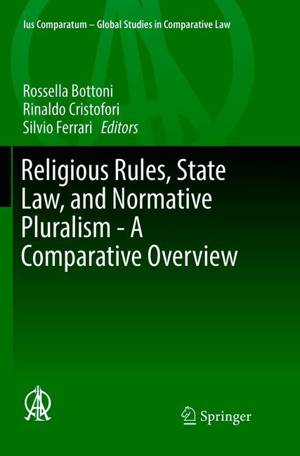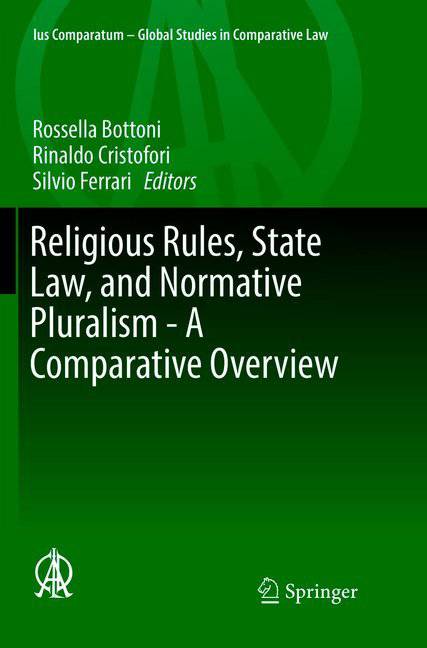
Je cadeautjes zeker op tijd in huis hebben voor de feestdagen? Kom langs in onze winkels en vind het perfecte geschenk!
- Afhalen na 1 uur in een winkel met voorraad
- Gratis thuislevering in België vanaf € 30
- Ruim aanbod met 7 miljoen producten
Je cadeautjes zeker op tijd in huis hebben voor de feestdagen? Kom langs in onze winkels en vind het perfecte geschenk!
- Afhalen na 1 uur in een winkel met voorraad
- Gratis thuislevering in België vanaf € 30
- Ruim aanbod met 7 miljoen producten
Zoeken
Religious Rules, State Law, and Normative Pluralism - A Comparative Overview
€ 183,45
+ 366 punten
Omschrijving
This book is devoted to the study of the interplay between religious rules and State law. It explores how State recognition of religious rules can affect the degree of legal diversity that is available to citizens and why such recognition sometime results in more individual and collective freedom and sometime in a threat to equality of citizens before the law. The first part of the book contains a few contributions that place this discussion within the wider debate on legal pluralism. While State law and religious rules are two normative systems among many others, the specific characteristics of the latter are at the heart of tensions that emerge with increasing frequency in many countries. The second part is devoted to the analysis of about twenty national cases that provide an overview of the different tools and strategies that are employed to manage the relationship between State law and religious rules all over the world.
Specificaties
Betrokkenen
- Uitgeverij:
Inhoud
- Aantal bladzijden:
- 420
- Taal:
- Engels
- Reeks:
- Reeksnummer:
- nr. 18
Eigenschappen
- Productcode (EAN):
- 9783319803289
- Verschijningsdatum:
- 31/05/2018
- Uitvoering:
- Paperback
- Formaat:
- Trade paperback (VS)
- Afmetingen:
- 156 mm x 234 mm
- Gewicht:
- 603 g

Alleen bij Standaard Boekhandel
+ 366 punten op je klantenkaart van Standaard Boekhandel
Beoordelingen
We publiceren alleen reviews die voldoen aan de voorwaarden voor reviews. Bekijk onze voorwaarden voor reviews.








